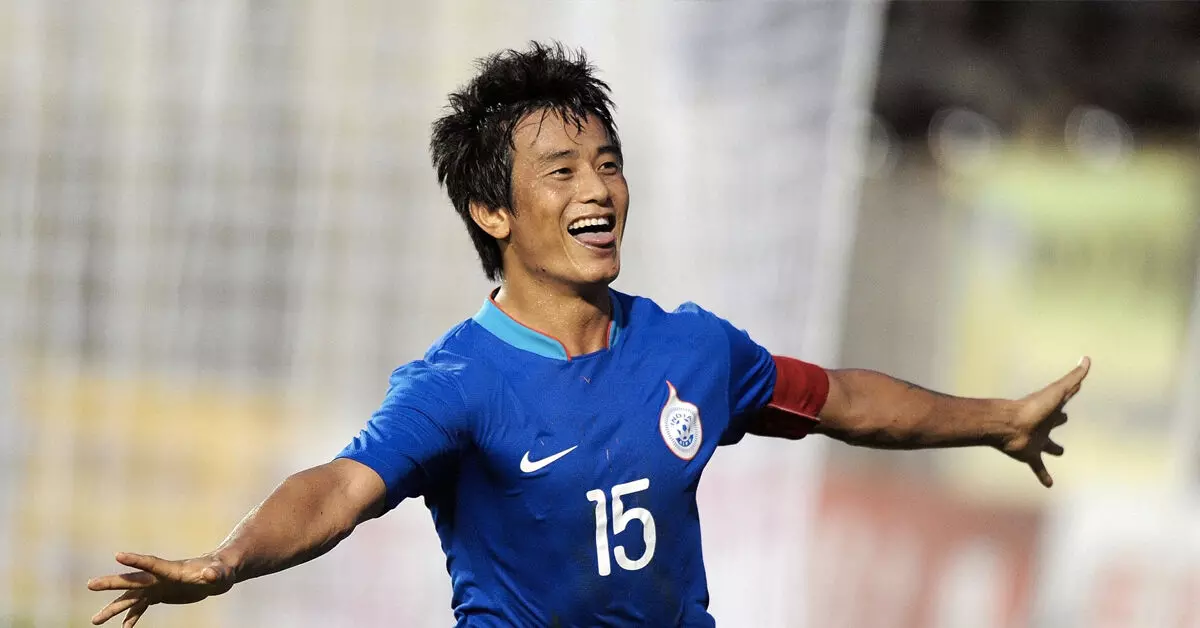Olympics-Facts
Why Bhaichung Bhutia had refused to run with the Olympics torch?
India's football superstar Bhaichung Bhutia was invited to be one of the torchbearers of the 2008 Olympics, however, he had refused to carry the torch.

Bhaichung Bhutia
The Olympic flame first became a tradition of the Modern Olympic Games when an Olympic flame was lit and remained burning at the entrance to the Olympic Stadium throughout the 1928 Amsterdam Games. The lighting of the flame captured the public's imagination and has remained a traditional ceremony for the Opening Ceremony of the Games. Following the tradition, Tokyo Olympic organizers kicked off the Olympic torch relay in Japan on Thursday with 10,000 torchbearers set to zigzag across the country before they arrive at the Olympic Stadium on July 23 for the opening ceremonies.
During the 2008 Beijing Olympics in China, the torch relay route involved 21 countries where the Olympic torch was carried between its lighting in Greece in March 2008 and the Olympic opening ceremony in China's host city of Beijing in August 2008. The relay took place in four separate legs. India was one of the countries where the torch relay was hosted and around 70 eminent personalities including Manavjit Singh Sandhu, Abhinav Bindra, actor Aamir Khan, among others carried the torch. India's football superstar Bhaichung Bhutia was also invited to be one of the torchbearers, however, Bhutia refused to carry the torch.
Why Bhaichung Bhutia refused to be an Olympic torchbearer?
As the Olympic torch was flown into the Chinese capital to be taken around the world, the shadow of Tibetan protests over the Beijing Games grew and the then Indian football team captain had refused to run with the flame sympathising with the Tibetan cause. Bhutia had faxed his decision to the Indian Olympic Association (IOA). The mercurial forward from Sikkim, himself a Buddhist, believed China didn't handle the Tibet issue right.
Bhaichung Bhutia gave away some football equipment to his village coaching camp (Source: Bhaichung Bhutia/Twitter)
In an interview with The Times of India, he had said, "I have many friends in Sikkim who follow Buddhism. This is my way of standing by the people of Tibet and their struggle. I abhor violence in any form." He had also emphasised that he was not requested by any group to pull out of the torch run. During his footballing career, Bhutia barely involved himself in politics. But the cause of the Tibetan people had struck a chord with the 'Sikkimese Sniper'.
Why Tibetans were protesting against China hosting the Olympics?
The 2008 Tibetan unrest was a series of protests and demonstrations over the Chinese government's treatment and persecution of Tibetans. Protests in Lhasa by monks and nuns were viewed as the start of the demonstrations. Numerous peaceful protests and demonstrations were held to commemorate the 49th anniversary of the 1959 Tibetan Uprising Day, when the 14th Dalai Lama escaped from Tibet.
The protests and demonstrations spread spontaneously to a number of monasteries and throughout the Tibetan plateau, including into counties located outside the designated Tibet Autonomous Region. The arrest of monks at Labrang Monastery increased the tenseness of the situation.
The violence began when Chinese police and People's Liberation Army units used force on non-violent protests by monks and nuns, and spread when protesting Tibetans later clashed with security forces. Clashes also occurred between Tibetans and Chinese Han and Hui residents, resulting in Han and Hui stores and buildings being destroyed and numerous Chinese civilians being injured or killed. China, invested billions of dollars in Olympics preparations and staked its national reputation on the Games. Five months before the games begin, it had expected to bask in international praise. Instead, the protests attracted the kind of international attention China didn't want.
